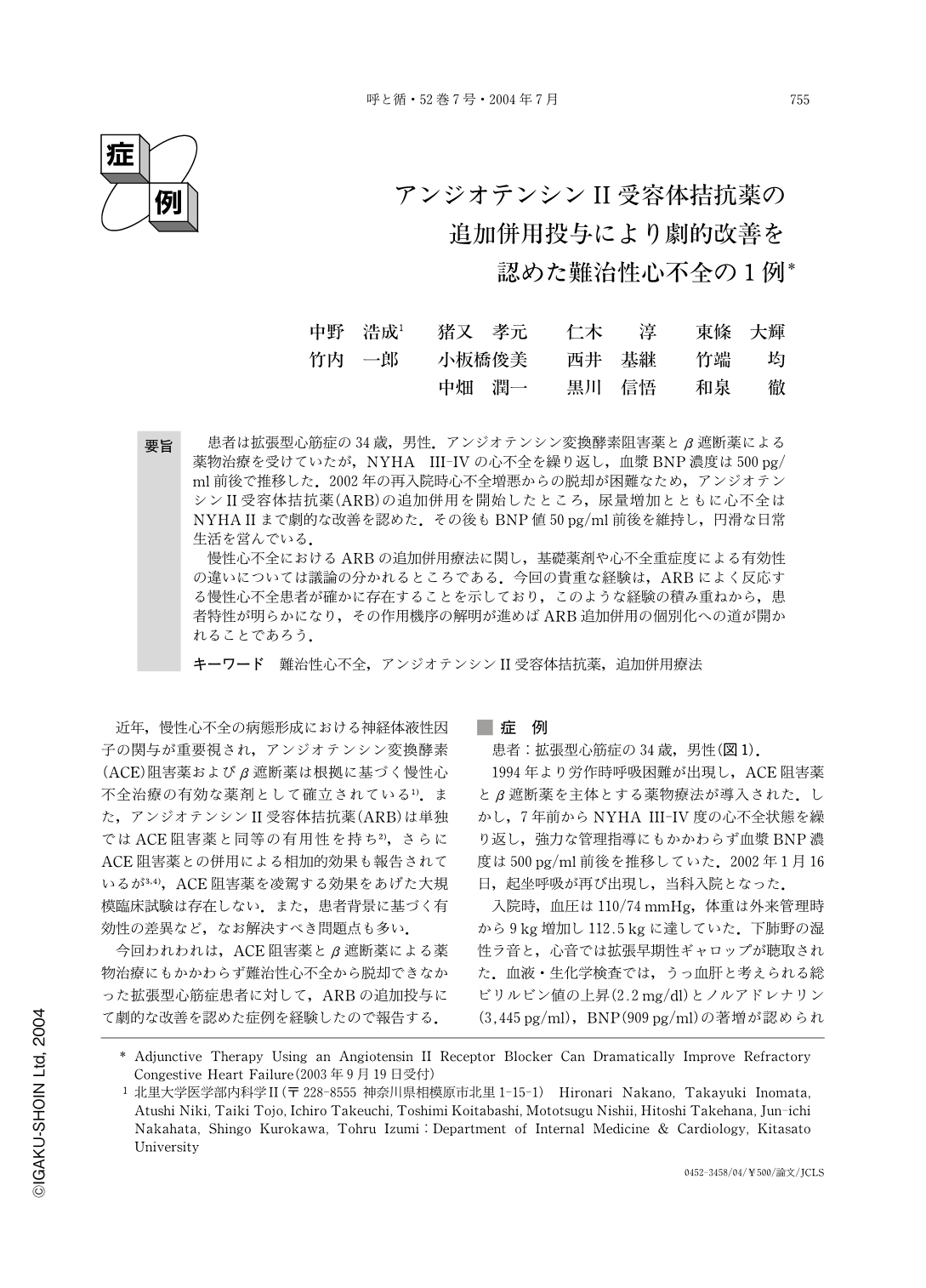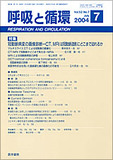Japanese
English
- 有料閲覧
- Abstract 文献概要
- 1ページ目 Look Inside
要旨
患者は拡張型心筋症の34歳,男性.アンジオテンシン変換酵素阻害薬とβ遮断薬による薬物治療を受けていたが,NYHA III-IVの心不全を繰り返し,血漿BNP濃度は500pg/ml前後で推移した.2002年の再入院時心不全増悪からの脱却が困難なため,アンジオテンシンII受容体拮抗薬(ARB)の追加併用を開始したところ,尿量増加とともに心不全はNYHA IIまで劇的な改善を認めた.その後もBNP値50pg/ml前後を維持し,円滑な日常生活を営んでいる.
慢性心不全におけるARBの追加併用療法に関し,基礎薬剤や心不全重症度による有効性の違いについては議論の分かれるところである.今回の貴重な経験は,ARBによく反応する慢性心不全患者が確かに存在することを示しており,このような経験の積み重ねから,患者特性が明らかになり,その作用機序の解明が進めばARB追加併用の個別化への道が開かれることであろう.
Summary
A 34-year-old male who had suffered from refractory heart failure was relieved by adjunctive use of the angiotensin II receptor blocker(ARB). After being diagnosed as having dilated cardiomyopathy 7 years previously, the patient was treated with both an angiotensin converting enzyme inhibitor(ACEI)and with beta-blocker in the conventional way. In spite of the standardized beta-blocker therapy,t he condition of his disease gradually deteriorated. Finally his cardiac state started to fall into NYHA IV, and his plasma BNP concentration could not be lowered beyond about 500 pg/ml. When the patient was in our hospital in 2002, due to repetitive and refractory attacks of orthopnea, his heart was moderately treated with intra-venous injections of furosemide and catecholamines. Though ACEI and beta-blocker combination therapy was retried as soon as possible, his condition was absolutely refractory. ARB was carefully added to his treatment as it was considered that, ventually, this would be inevitable. Immediately after this trial, his urine volume gradually increased and the intravenous injections were no longer required. After his dramatic recovery from the refractory state, he returned to his former active life. His NYHA function has been maintained at a level of class II, and his plasma BNP value has been also around 50 pg/ml.
Concerning the adjunctive use of ARB in CHF patients, various contionary concerns have been focused on. However, despite several clinical trials such as the one outlined here, this drug has not yet come to be regarded as more effective than ACEI. Through this encounter, we have demonstrated a case of one good responder, showing the efficacy of adjunctive use of ARB for patients responder to the adjunctive use of ARB with chronic heart failure refractory to other treatments. We hope further cases will clarify this responder's characteristics and pharmacological reasons why ARB, used adjunctively, can be effective. If this data can be found, it will facilitate the establishment of a novel tailored adjunctive therapy for individuals refractory to other treatments.

Copyright © 2004, Igaku-Shoin Ltd. All rights reserved.


